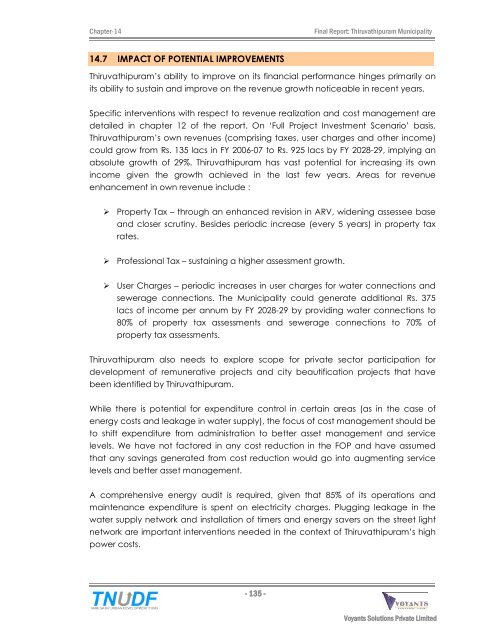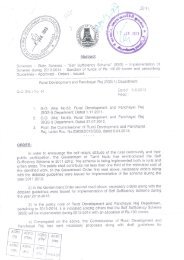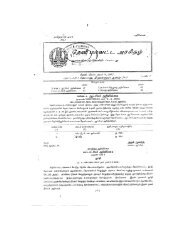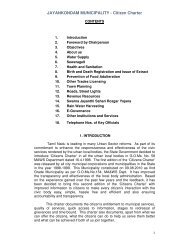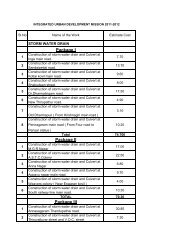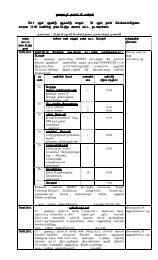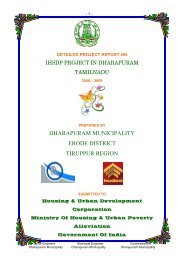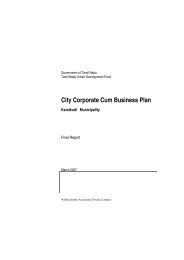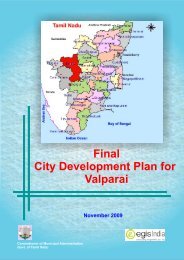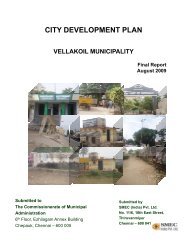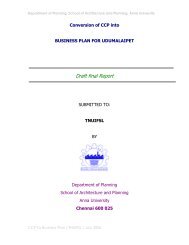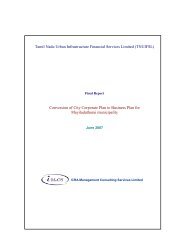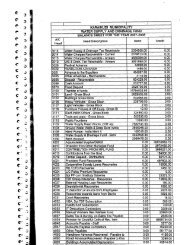City Development Plan - Municipal
City Development Plan - Municipal
City Development Plan - Municipal
Create successful ePaper yourself
Turn your PDF publications into a flip-book with our unique Google optimized e-Paper software.
Chapter-14 Final Report: Thiruvathipuram <strong>Municipal</strong>ity<br />
14.7 IMPACT OF POTENTIAL IMPROVEMENTS<br />
Thiruvathipuramís ability to improve on its financial performance hinges primarily on<br />
its ability to sustain and improve on the revenue growth noticeable in recent years.<br />
Specific interventions with respect to revenue realization and cost management are<br />
detailed in chapter 12 of the report. On ëFull Project Investment Scenarioí basis,<br />
Thiruvathipuramís own revenues (comprising taxes, user charges and other income)<br />
could grow from Rs. 135 lacs in FY 2006-07 to Rs. 925 lacs by FY 2028-29, implying an<br />
absolute growth of 29%. Thiruvathipuram has vast potential for increasing its own<br />
income given the growth achieved in the last few years. Areas for revenue<br />
enhancement in own revenue include :<br />
Property Tax ñ through an enhanced revision in ARV, widening assessee base<br />
and closer scrutiny. Besides periodic increase (every 5 years) in property tax<br />
rates.<br />
Professional Tax ñ sustaining a higher assessment growth.<br />
User Charges ñ periodic increases in user charges for water connections and<br />
sewerage connections. The <strong>Municipal</strong>ity could generate additional Rs. 375<br />
lacs of income per annum by FY 2028-29 by providing water connections to<br />
80% of property tax assessments and sewerage connections to 70% of<br />
property tax assessments.<br />
Thiruvathipuram also needs to explore scope for private sector participation for<br />
development of remunerative projects and city beautification projects that have<br />
been identified by Thiruvathipuram.<br />
While there is potential for expenditure control in certain areas (as in the case of<br />
energy costs and leakage in water supply), the focus of cost management should be<br />
to shift expenditure from administration to better asset management and service<br />
levels. We have not factored in any cost reduction in the FOP and have assumed<br />
that any savings generated from cost reduction would go into augmenting service<br />
levels and better asset management.<br />
A comprehensive energy audit is required, given that 85% of its operations and<br />
maintenance expenditure is spent on electricity charges. Plugging leakage in the<br />
water supply network and installation of timers and energy savers on the street light<br />
network are important interventions needed in the context of Thiruvathipuramís high<br />
power costs.<br />
- 135 -<br />
Voyants Solutions Private Limited


